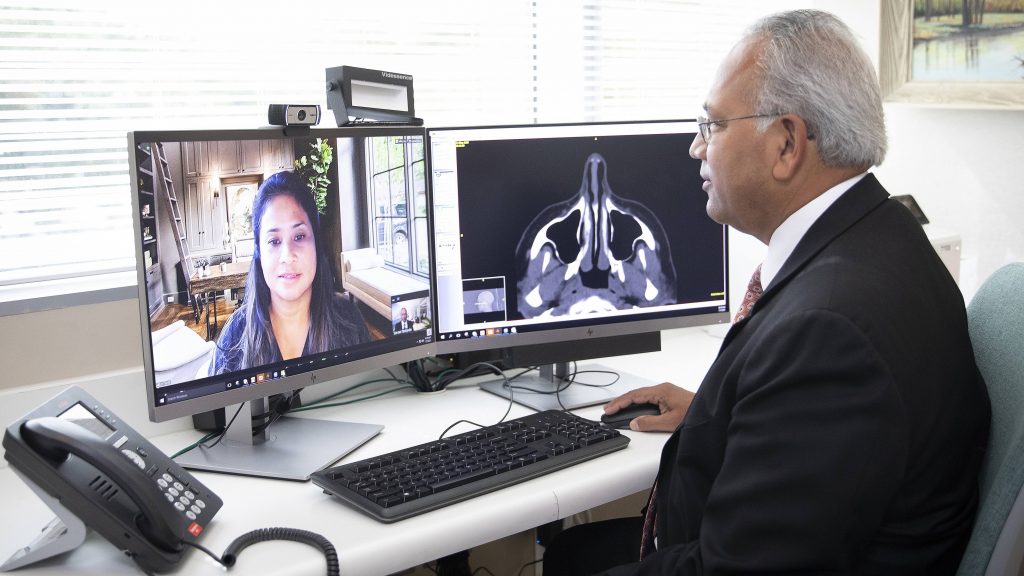
In late November, the COVID-19 HealthCare Coalition, comprising more than 1,000 health care organizations, technology firms and nonprofits, including Mayo Clinic, published the Telehealth Impact Physician Survey results.
The survey, managed through Mayo Clinic and led by Steve Ommen, M.D., medical director, Mayo Clinic Center for Connected Care and Nilay Shah, Ph.D., chair of Mayo’s Division of Health Care Policy and Research, two of the project’s co-investigators, had several research goals. One was to assess how telehealth served the clinical needs of patients during COVID-19. Additionally, the survey sought to get feedback from physicians on the kinds of telehealth platforms and technologies they used and respondents’ feelings about the value of telehealth and their expectations for using telehealth after the pandemic.
The 48-question survey captured the opinions of 1,594 physicians and other licensed health care professionals between July 13 and Aug. 15, 2020. Among those surveyed, 87% were medical doctors and 13% were non-physician providers including nurse practitioners, psychologists, physician assistants and social workers.
Findings
More than 75% of respondents said telehealth enabled them to provide quality care for COVID-19-related care, acute care, chronic disease management, hospital/emergency department follow-up, care coordination, preventative care, and mental/behavioral health.
Other findings show strong support for telehealth, resulting in:
- Improved patient health noted by 60% of respondents.
- Increased motivation to integrate telehealth across 68% of practices.
- Improved job satisfaction among 55% of survey participants.
- More than 80% of respondents indicated that telehealth improved the timeliness of care for their patients. A similar percentage said that their patients had reacted favorably to using telehealth for care.
Additionally, 11% of responding health care professionals said they were using remote patient monitoring technologies with patients in their homes. Commonly used tools included smartphones, blood pressure cuffs, body weight scales, and pulse oximeters.
“The strong support shown for telehealth, as evidenced in these results, reinforces the knowledge that telehealth is critical to how we deliver health care today,” says Dr. Ommen. “The use of telehealth during the COVID-19 pandemic highlights its importance in care delivery. Its continued use will be instrumental in connecting to patients everywhere.”
Read the rest of the article in Advancing the Science.
____________________________________________
Other Mayo Clinic medical research websites:
- Research at Mayo Clinic
- Discovery’s Edge
- Forefront
- Mayo Clinic Center for Individualized Medicine
- Center for Regenerative Medicine
- Center for the Science of Health Care Delivery







